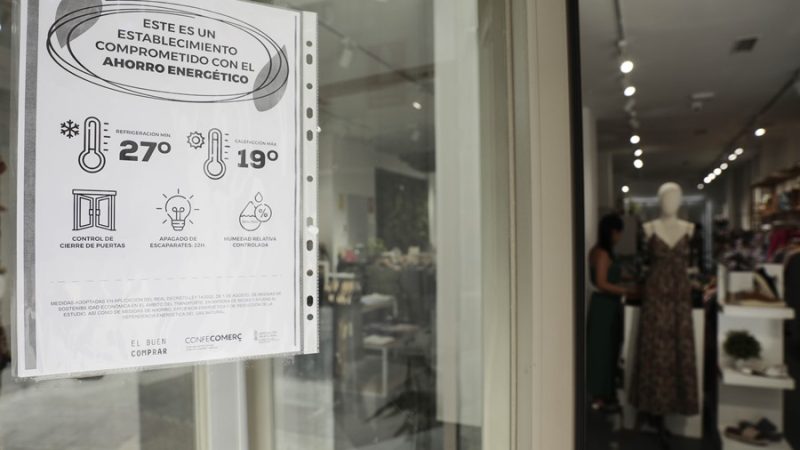Brussels – Spanish small and medium-sized enterprises (SMEs) are the most proactive in adopting measures to make efficient use of resources, such as saving water or energy, and they invest the most in this type of actions in the European Union, according to a Eurobarometer published this Friday by the European Commission.
Specifically, 98% of Spanish SMEs adopt at least one action to improve their efficiency, including saving energy, minimizing waste, reducing water consumption, or recycling, and 58% of them invest at least 1% of their annual turnover in this type of actions.
These figures are above the EU average, which is 93% and 38%, respectively, and are the highest in the bloc, according to the survey conducted among more than 13,100 European SMEs.
These companies, which employ 90 million people and represent half of the EU’s GDP, mainly focus on energy savings (66% have measures for this), waste reduction (66%), saving materials (57%) and water (49%), and recycling (48%).
In Spain, the trend is the same, although the number of SMEs claiming to adopt these measures is higher in all cases than the average: it is around 80% in all of them except for water savings, where the rate is 73%.
Regarding investments, 15% of Spanish SMEs invest more than 5% of their annual turnover in this task, 43% invest between 1% and 5% of turnover, and 12% of firms allocate less than 1%, which means, however, that four out of ten do not invest to improve their efficiency.
On the other hand, Spanish firms are slightly below the European average in the use of renewable energies, with 31% compared to 35% in the EU, and aligned with their peers in adopting strategies to achieve climate neutrality: two out of ten Spanish and European SMEs have such plans.
Bureaucracy and costs hinder the task
Despite the widespread adoption of measures, small and medium-sized enterprises highlight that there are barriers to making more efficient use of their resources, particularly the complexity of administrative and legal procedures, which poses a problem for 35% of them.
They are followed by the cost of environmental action (28%) and the complex requirements needed to report on this impact (26%).
Spanish SMEs agree on these three main problems but note that they encounter them more often than their European peers: approximately half of Spanish SMEs have experienced difficulties with administrative procedures and the costs of these environmental measures, and four out of ten see a barrier in reporting requirements.
The lack of specific environmental experience and the difficulty of adapting legislation to their companies are also an obstacle for more than 40% of them. (October 18)
 go to the original language article
go to the original language article
